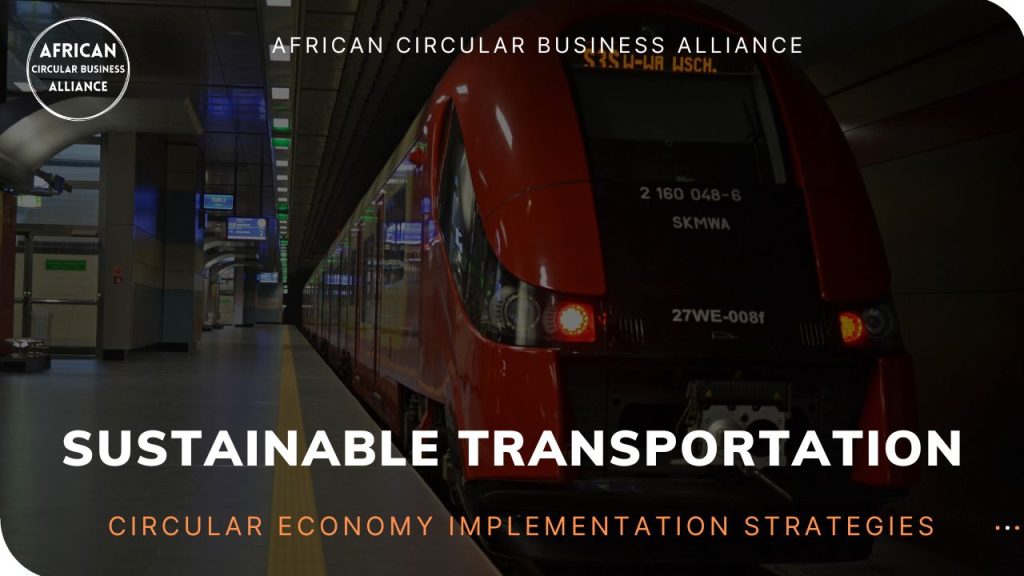
Transportation is a vital aspect of modern society, connecting people and goods across vast distances. However, the traditional approach to transportation has often relied solely on fossil fuels and inefficient modes of transport, resulting in high levels of pollution, congestion, and carbon emissions. In Africa, the need for sustainable transportation has never been more pressing, as the continent grapples with the dual challenges of rapid urbanisation and climate change. Fortunately, there is a solution: implementing Circular Economy strategies can help Africa build sustainable transportation systems that are both environmentally and socially responsible.
The Circular Economy is a model that emphasizes the reuse, recycling, and repurposing of materials and resources, in contrast to the traditional linear model of production and consumption. In the context of transportation, the Circular Economy can be implemented through a variety of strategies, such as:
- Promoting public transport: One of the most effective ways to reduce carbon emissions from transportation is to encourage the use of public transport, such as buses, trains, and trams. By investing in high-quality public transport systems, cities can reduce the number of cars on the road and promote more sustainable modes of transportation. Additionally, by using clean energy sources such as solar, hydrogen or wind power, public transport can become more sustainable.
- Encouraging active transport: Active transport, such as walking and cycling, is not only sustainable but also has numerous health benefits. By creating safe and accessible pedestrian and cycling infrastructure, cities can encourage more people to choose active transport options, thereby reducing reliance on motor vehicles and promoting healthier lifestyles.
- Promoting hybrid vehicles: Hybrid vehicles are becoming increasingly popular in many parts of the world, and Africa is no exception. By incentivizing the adoption of hybrid vehicles, governments can reduce the carbon emissions associated with transportation and promote more sustainable forms of mobility.
- Adopting a shared economy approach: Sharing economy models, such as car-sharing or ride-sharing, can significantly reduce the number of vehicles on the road and promote more sustainable transportation. By pooling resources and sharing vehicles, cities can reduce the environmental impact of transportation while also promoting social inclusion and reducing traffic congestion.
- Encouraging the use of sustainable fuels: Biofuels, hydrogen and other sustainable fuel sources have the potential to revolutionize transportation in Africa, providing a low-carbon alternative to fossil fuels. By investing in research and development and incentivizing the adoption of sustainable fuels, governments can reduce their reliance on fossil fuels and promote more sustainable forms of transportation.
In conclusion, building sustainable transportation in Africa is essential for promoting economic development, reducing poverty, and mitigating the impacts of climate change. By adopting Circular Economy strategies such as promoting public transport, encouraging active transport, promoting electric and hybrid vehicles, adopting a shared economy approach, and encouraging the use of sustainable fuels, Africa can build transportation systems that are socially, environmentally, and economically sustainable. The time to act is now, and by working together, we can create a brighter, more sustainable future for all Africans.
